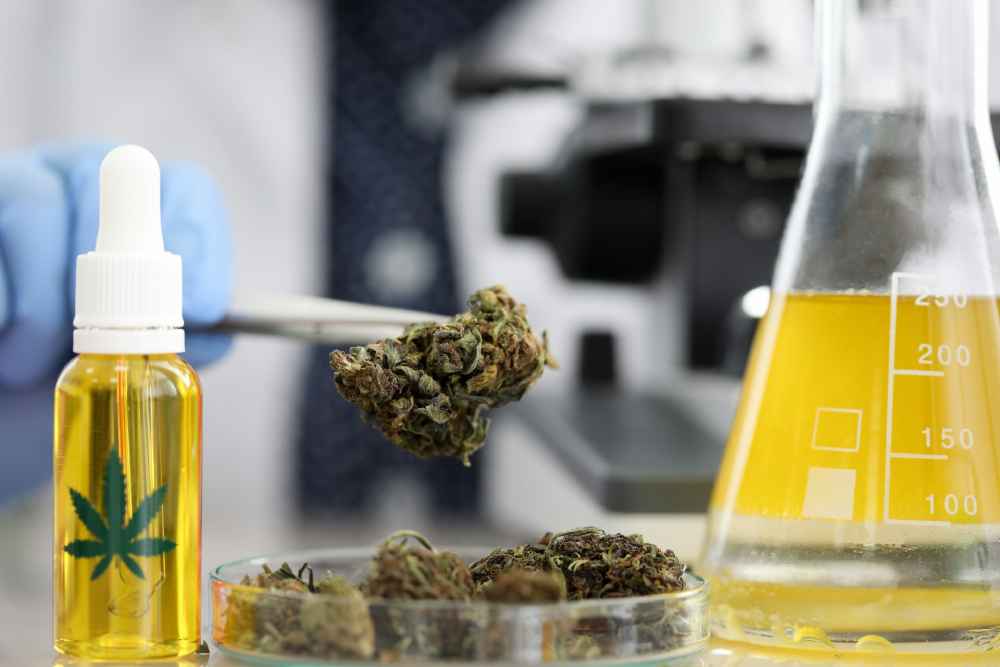In the rapidly evolving landscape of natural wellness, two compounds have emerged as frontrunners: Cannabidiol (CBD) and Tetrahydrocannabinol (THC). These cannabinoids, derived from the cannabis plant, have sparked a global conversation about their potential benefits and risks. This article aims to unravel the mysteries surrounding CBD and THC, exploring their properties, effects, and the growing body of research behind them.
Contents
- 1 The Cannabis Cousins: Understanding CBD and THC
- 2 The Body’s Own Cannabis System
- 3 Potential Health Benefits: A Growing Field of Study
- 4 The Entourage Effect: Better Together?
- 5 Navigating the Legal Landscape
- 6 Consumption Methods: From Oils to Edibles
- 7 Dosage and Safety Considerations
- 8 Frontier of Cannabinoid Science
- 9 Smart Consumption: A Brief Guide
The Cannabis Cousins: Understanding CBD and THC
CBD and THC are both naturally occurring compounds found in cannabis plants. While they share a common origin, their effects on the human body are markedly different. THC is known for its psychoactive properties, responsible for the “high” associated with marijuana use. CBD, on the other hand, is non-intoxicating and has gained popularity for its potential therapeutic benefits without altering one’s mental state.
The Body’s Own Cannabis System
The human body contains an endocannabinoid system (ECS), a complex network of receptors and neurotransmitters that play a crucial role in maintaining homeostasis. THC interacts directly with this system, particularly with CB1 receptors in the brain, leading to its psychoactive effects. CBD’s interaction with the ECS is more subtle and indirect, potentially modulating the system’s overall function.
Potential Health Benefits: A Growing Field of Study
Research into the therapeutic potential of CBD and THC is ongoing and promising. CBD has shown potential in managing anxiety, reducing inflammation, and alleviating chronic pain. It has even received FDA approval in the form of Epidiolex for treating certain types of epilepsy. THC, despite its psychoactive nature, has demonstrated potential in managing chronic pain, reducing nausea in cancer patients, and stimulating appetite in individuals with certain medical conditions.
The Entourage Effect: Better Together?
Some researchers propose that CBD and THC may work more effectively in combination rather than in isolation, a phenomenon known as the entourage effect. This theory suggests that the various compounds in cannabis work synergistically, enhancing their individual benefits. However, more research is needed to fully understand and validate this concept.
The legal status of CBD and THC varies significantly across different jurisdictions. In many countries, CBD derived from hemp (cannabis with less than 0.3% THC) is legal, while THC remains more strictly regulated. This complex legal landscape can create challenges for consumers, healthcare providers, and businesses alike. It’s crucial for individuals to understand the specific regulations in their area before using or purchasing these products.
Consumption Methods: From Oils to Edibles
CBD and THC can be consumed in various forms, each with its own onset time and duration of effects. Common methods include:
- Oils and tinctures
- Edibles (gummies, chocolates, baked goods)
- Topical creams and lotions
- Vaporizers and smokable flower
- Capsules and pills
The choice of consumption method can significantly impact the compound’s bioavailability and overall effects.
Dosage and Safety Considerations
Determining the right dosage of CBD or THC is a highly individualized process. Factors such as body weight, metabolism, and the specific condition being addressed all play a role. It’s generally recommended to start with a low dose and gradually increase as needed, preferably under medical supervision.
While both compounds are generally well-tolerated, they can cause side effects. CBD may lead to fatigue, changes in appetite, and diarrhea in some users. THC can cause short-term effects such as increased heart rate, dry mouth, red eyes, and impaired memory and coordination. Long-term, heavy use of THC has been associated with an increased risk of psychiatric issues in some individuals.
Frontier of Cannabinoid Science
The realm of CBD and THC research is expanding rapidly, with scientists exploring their potential in treating various conditions. Recent studies focus on neurodegenerative disorders, mental health issues, and inflammatory diseases.
The development of synthetic cannabinoids and advanced delivery methods are also areas of growing interest. While preliminary results are promising, larger clinical trials are needed to confirm efficacy and safety. The coming years are likely to bring significant advancements in our understanding of these compounds and their medical applications.
Smart Consumption: A Brief Guide
For those considering CBD or THC use:
- Consult a healthcare professional first.
- Source products from reputable providers.
- Start with low doses and increase gradually.
- Know your local laws regarding cannabinoid use.
- Be aware of potential side effects.
- Consider full-spectrum products for the entourage effect.
- Keep a usage journal to track effects.
- Stay informed about the latest research.
Approach CBD and THC use with knowledge and caution. Remember, individual experiences may vary, and finding the right approach requires patience and careful observation.



